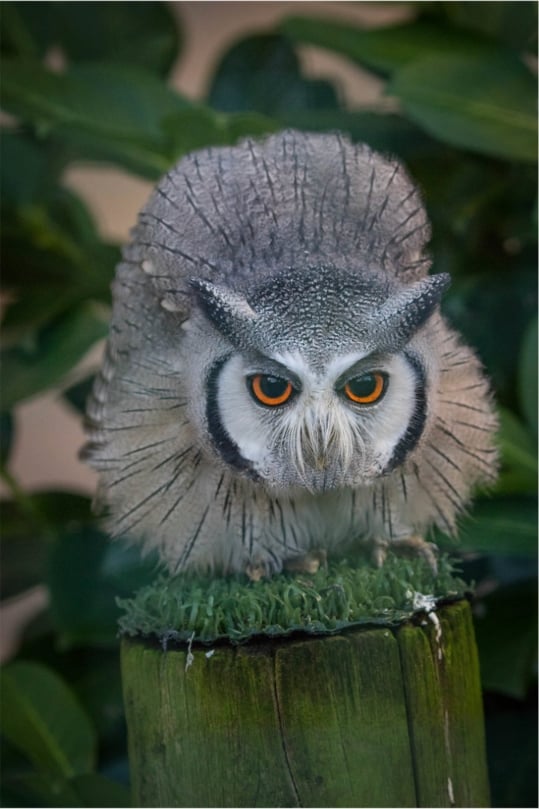deleted by creator
- 1 Post
- 84 Comments
That’s a drei sense of humor

 17·2 days ago
17·2 days agoEven better - it’s using ESPHome, which is part of the Home Assistant stack.
ESPHome works from a YAML config file, which ESPHome uses to build firmware images which can be installed OTA (or USB of you must)

 2·4 days ago
2·4 days agoCar accidents, falls, drownings, poisonings (ie eating something you shouldn’t), fires. There are a lot of horrible ways to go.

That is indeed a really well written article

 3·9 days ago
3·9 days agoSo they were rushing to an empty house to rescue who exactly?

 21·10 days ago
21·10 days ago- Extra virgin olive oil for anything where the taste is a good thing
- Any oil with high monounsaturates and zero saturates (the rest being polyunsaturates). This may be a seed oil.
Extra virgin olive oil (and it has to be extra virgin) is known and scientifically proven to be very good for you.
Seed oils are today highly controversial - I avoided them for many years - but current science research suggests that they are perfectly safe, and indeed good for lowering cholesterol.
Here’s a real scientist, working and published in exactly this area, talking about this exact question: https://youtu.be/VRlleOTBq7k?si=trB8t5xRjOJml5ug

 38·12 days ago
38·12 days agoI agree with your logic and analysis.
However the non-tangibles here are pretty staggering - Russia is hugely dependent on China and India for exports (basically oil and gas) to raise cash and foreign currency. It also needs high tech goods from China - China provides drones, cars, bikes, clothes and more to support the invasion. And critically a lot of electronics, including those under sanctions being smuggled from the West.
Placing tariffs on China sends a strong negative message to China - it’s a real slap in the face that will invite a pretty nasty punch back again.
What on earth motivated this?

 10·15 days ago
10·15 days agoTSMC and Intel both use ASML lithography, but there are many many more steps than just lithography - Intel, TSMC, Samsung and other chipmakers use different processes to make the components on their chips (many of which are patented and so owned by specific parties).
These things include the physical structure of the components and wiring on the chip, how the silicon is doped and with what ions, what coatings are put on to be etched in the lithography and what coatings are applied to the etched layers, how the chips are packaged and also how multiple chips can be combined into one package.
Basically there are similarities but also hige differences between the different manufacturers, and a lot of trade secrets.
If you’re interested in this kind of thing, I’d recommend the youtube channel Asianometry - the content creator is amazing.
That made my head spin. Sorry about the pun - guilty as charged.

 3·27 days ago
3·27 days agoDid you pronounce that as ‘scone’ or ‘scone’?

 21·1 month ago
21·1 month agoThere’s no widespread infanticide happening as far as i can tell
Just a little female infanticide going on.

 16·1 month ago
16·1 month agoThis has already been put to rest by the scientists, unsurprisingly.
It’s much more common among those who got covid without having had the vaccine (either on those who had covid before the vaccine, or those who didn’t take it).
Better: Above 60°C pasteurizes the contents so killing all bacteria.
Technically pasteurization is met by holding the food over a specific temperature for a specific time, so over 63-65°C for 30 minutes, or 100°C for 12 seconds.
Normal pasteurization is very similar to cooking in times and temperature, and so pasteurization cooks both the food, altering texture, appearance and taste, and the bacteria.
UHT means ultra high temperature pasteurisation, which heats, eg, milk well over 100°C for only a couple of seconds and immediately cools it, minimizing the alteration of the milk.
So, by keeping the stew over 70°C, the stew is completely food safe.

 26·1 month ago
26·1 month agoThat language is at a very much higher grade level and complexity to that of the current political discourse. Wow.

 2·1 month ago
2·1 month agoWhile the powers are separated, if all three are aligned there is nothing they can’t do. The supreme court has already demonstrated it’s able to reinterpret the constitution in a way no other court has done in history.

 1·1 month ago
1·1 month agoFor now
There’s a word for not being able to handle this: misophonia
It seems that for some people (myself included) it generates a primal urge.
Or stepping off an escalator and just stopping right there to get their bearings.





That’s so funny it’s in zehn.